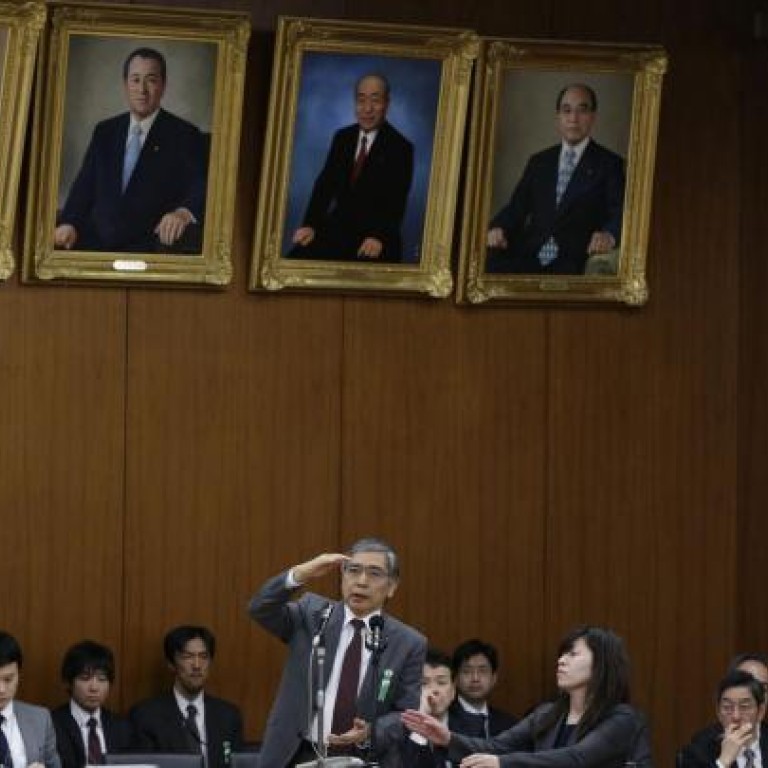
Bank of Japan chief to do 'whatever it takes' to end deflation
Central bank chief aims to achieve price rises within two years; some say it must be sooner
The governor of the Bank of Japan, Haruhiko Kuroda, has given himself two years to do "whatever it takes" to end deflation and revive the world's third-largest economy. He may have less than half that time to produce results.
Kuroda needs price rises in six to 12 months or the market may lose confidence in his ability to reach a 2 per cent inflation target by 2015, say Goldman Sachs and JP Morgan Chase. The bank was expected to boost monthly bond purchases by about 50 per cent to 5.2 trillion yen (HK$430 billion) at a two-day meeting yesterday.
Pressure for results is growing amid doubts from economists and former central bank officials over whether Kuroda can meet his deadline.
At stake is the credibility of Prime Minister Shinzo Abe's economic programme, dubbed "Abenomics", after expectations for more easing sent the yen more than 16 per cent lower against the US dollar over the last six months.
"Kuroda doesn't have two years," said Masamichi Adachi, senior economist at JP Morgan and a former BOJ official. "He has to show that inflation is approaching 1 per cent in at least a year, and if he can't do that then the power of 'Abenomics' will be in doubt."
Japan's core prices have fallen in 19 of 26 months up to February, and analysts see a rise of 0.5 per cent in one year. Prices excluding fresh food have not risen 2 per cent for any year since 1997, when a sales tax was increased.
Kuroda, who said on Tuesday that bold action is necessary to meet expectations, has indicated that expanded purchases of government bonds will be the main tool for easing. Yields on 10- and 20-year bonds fell to near decade lows on March 26.
The bank currently buys debt with maturities of up to three years, as well as exchange-traded funds and other risk assets in an asset-purchase programme for monetary easing. Outright monthly purchases of government bonds were an average 3.4 trillion yen in the first three months of this year.
Kuroda has said the bank would consider combining monthly purchases and an asset-purchase fund, as well as buying more debt with longer maturities. He has also suggested the bank would bring forward open-ended purchases planned for next year.
Setting a target for the size of the balance sheet is another policy shift being considered, people familiar with the central bank's discussions said last week.
Atsushi Mizuno, a former BOJ board member, said last month that more bond purchases risked a market bubble. Kazumasa Iwata, a former deputy governor, said on March 26 that Kuroda's two-year deadline was impossible. Even Abe said on Tuesday the bank should not pursue a 2 per cent inflation target "at all costs".

